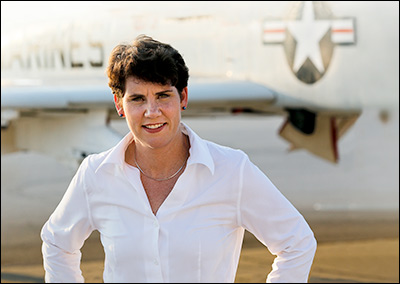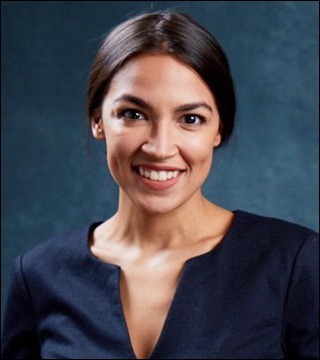By Jim Ellis
 Oct. 19, 2020 — Every political observer remembers that the cumulative polling community incorrectly predicted the Great Lakes states of Michigan, Pennsylvania, and Wisconsin in the 2016 Trump-Clinton presidential race, but further research finds additional significant misses in succeeding elections.
Oct. 19, 2020 — Every political observer remembers that the cumulative polling community incorrectly predicted the Great Lakes states of Michigan, Pennsylvania, and Wisconsin in the 2016 Trump-Clinton presidential race, but further research finds additional significant misses in succeeding elections.
Political research reveals that two of those campaigns came in Iowa during the 2016 presidential race and the hotly contested governor’s race two years later. Today, we look at the Hawkeye State numbers with the goal of potentially ascertaining if there is a common polling pattern or consistent error factor.
In October, four polls have been released for the 2020 contest from a like number of different pollsters, two from left of center organizations while the other two are independent entities. The research organizations are Data for Progress, Civiqs for the Daily Kos Elections webpage, YouGov, and Quinnipiac University. Each has conducted one October Iowa survey.
In the presidential race, the polls yield former vice president Joe Biden an average lead of just over one percentage point. The cumulative ballot test mode then finds Des Moines real estate executive Theresa Greenfield (D) topping Sen. Joni Ernst (R) with a margin of four percentage points.
How do these numbers compare to recent polling vs. results electoral history, and is there an inherent Republican under-poll present?
In 2016, the Real Clear Politics polling average from Nov. 1-4 found then-candidate Donald Trump leading former Secretary of State Hillary Clinton by a mean average of three percentage points derived from three polls and three different polling firms. On Election Day, Nov. 4, 2016, Trump carried the state by a much larger 9.5-point margin.
Overall, 26 Iowa polls were released during the 2016 election cycle, with Trump recording a cumulative average lead of under half of one percentage point. According to the Real Clear Politics polling archives, 12 firms combined to reach the grand total, including Public Policy Polling (5 surveys), NBC News/Wall Street Journal/Marist College (5), Loras College (3), Quinnipiac University (3), Emerson College (2), and Selzer & Company for the Des Moines Register (2). The widest spread came from Loras College (Clinton plus-14) at the end of June. The Selzer & Company for the Des Moines Register poll produced the most accurate finding, Trump plus-7, at the very end of the election cycle (Nov. 1-4, 2016).

 The early media time reservations are invested in five states: Arizona, Colorado, Iowa, Maine, and North Carolina. This is certainly not the limit of the SMP planned expenditures, nor is the organization likely committed to fulfilling the entirety of this time buy without having negotiated an escape clause. All depends upon their agreements with the individual television outlets and does not include any future expenditure the group may make for radio and digital advertising.
The early media time reservations are invested in five states: Arizona, Colorado, Iowa, Maine, and North Carolina. This is certainly not the limit of the SMP planned expenditures, nor is the organization likely committed to fulfilling the entirety of this time buy without having negotiated an escape clause. All depends upon their agreements with the individual television outlets and does not include any future expenditure the group may make for radio and digital advertising. March 11, 2020 — Former vice president Joe Biden expanded his lead for the Democratic presidential nomination, but he didn’t quite deliver the knockout blow that many predicted.
March 11, 2020 — Former vice president Joe Biden expanded his lead for the Democratic presidential nomination, but he didn’t quite deliver the knockout blow that many predicted.  Nov. 20, 2019 — If it seems like the North Carolina redistricting process has dragged on for the entire decade, then your senses are correct, because it has. After seeing a mid-decade re-draw before the 2016 elections, another set of lines will be in place for 2020, and then another plan for the ensuing electoral decade beginning in 2022 will be enacted during the regular decennial process. North Carolina is a sure bet to gain a new congressional seat in 2020 reapportionment.
Nov. 20, 2019 — If it seems like the North Carolina redistricting process has dragged on for the entire decade, then your senses are correct, because it has. After seeing a mid-decade re-draw before the 2016 elections, another set of lines will be in place for 2020, and then another plan for the ensuing electoral decade beginning in 2022 will be enacted during the regular decennial process. North Carolina is a sure bet to gain a new congressional seat in 2020 reapportionment.
 Oct. 9, 2019 — The Civiqs polling firm, as covered in the Daily Kos Elections site, has been testing all 50 states regarding impeachment in a national tracking survey that attracted 150,070 online respondents from May 16 through Oct. 6. The latest numbers suggest that 51 percent of those respondents favor impeaching President Trump, while 45 percent oppose. But, it is in the breakdown of the states’ numbers where the true political story is being told.
Oct. 9, 2019 — The Civiqs polling firm, as covered in the Daily Kos Elections site, has been testing all 50 states regarding impeachment in a national tracking survey that attracted 150,070 online respondents from May 16 through Oct. 6. The latest numbers suggest that 51 percent of those respondents favor impeaching President Trump, while 45 percent oppose. But, it is in the breakdown of the states’ numbers where the true political story is being told.